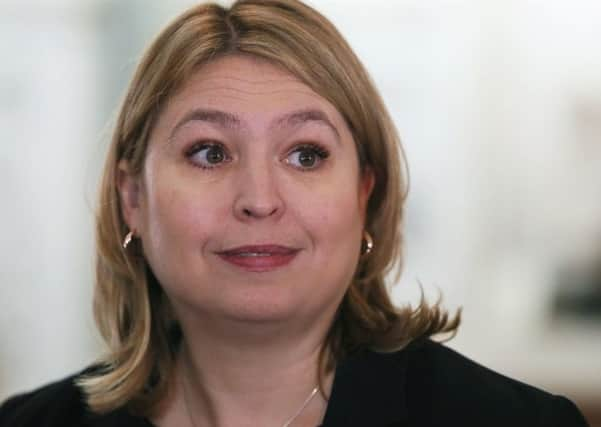Karen Bradley: Politicians should not scrutinise civil servants spending billions of pounds


Reaffirming her democratically unorthodox understanding of how public officials should be held to account, Karen Bradley said that in the absence of Stormont ministers, civil servants’ decisions about Stormont’s multi-billion pound budget should not be examined by politicians.
Privately, some senior members of the Northern Ireland Civil Service are deeply uncomfortable about the situation in which they have been placed by Mrs Bradley’s decision not to implement direct rule, meaning that they are now quasi-political figures.
Advertisement
Hide AdAdvertisement
Hide AdThe secretary of state was pressed about the issue while being questioned by the Northern Ireland Affairs Committee in the Commons.
As she spoke about her belief that civil servants should not be scrutinised by politicians, two of her senior officials sat beside her ready to answer MPs’ questions.
Mrs Bradley said that in giving officials the power to take some ministerial decisions, she had deliberately crafted legislation to ensure that civil servants could take decisions “but does not put them in the uncomfortable position of being scrutinised by politicians – because it would be absolutely wrong for officials in our civil service, in any part of our civil service in the UK, to find their decisions being scrutinised by politicians”.
Speaking forcefully, she went on: “That is not the way that our system works and it undermines our system.”
Advertisement
Hide AdAdvertisement
Hide AdShe said that there would be “constitutional difficulty” if civil servants at some future point were asked to work under the direction and control of a democratically elected minister if those civil servants “had [previously had] those decisions scrutinised by those same politicians”.
However, Mrs Bradley said that she would not seek to increase the powers of the Northern Ireland Civil Service beyond the additional powers she has given to them, saying: “I think we have gone as far as we can without upsetting the constitution fundamentally.”
In February the head of the Northern Ireland Civil Service, David Sterling, said that Northern Ireland is facing a “slow decay and stagnation in our public services” because of the current situation.
He said that “it’s only right that difficult decisions are taken by democratically elected and accountable ministers”. In evidence to the RHI Inquiry five months ago, he warned that Mrs Bradley’s legislation to let civil servants take some ministerial decisions “creates expectations the civil service will be doing things we probably will not be able to do”.
Advertisement
Hide AdAdvertisement
Hide AdMrs Bradley was also pressed about her reluctance to ensure that victims of historical institutional abuse are compensated before they die. Committee chairman Andrew Murrison said that it would “not be a good look” if she was prepared to pass legislation to allow alcohol to be sold at a golf match, but not to help victims.
Mrs Bradley replied: “I think the optics of Westminster picking and choosing what we legislate on is not good full stop.”